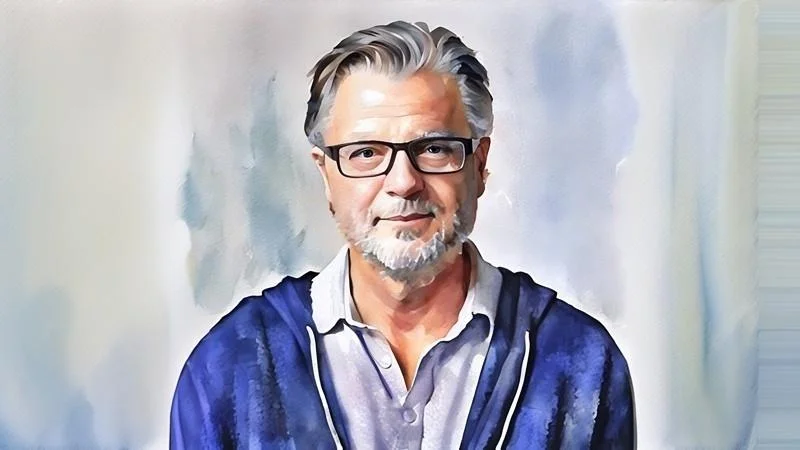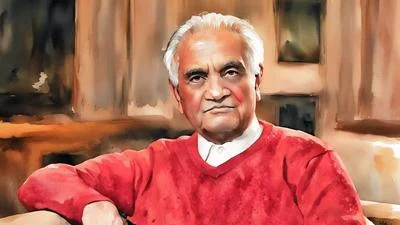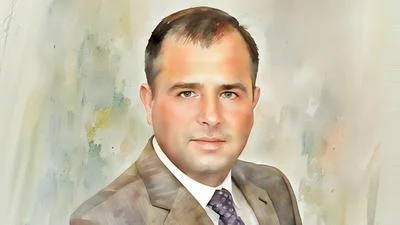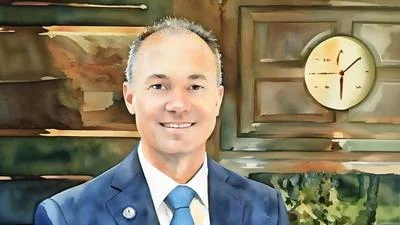The Chinese government is accelerating its development of quantum technologies, and American national security experts are warning that the future of encryption, digital privacy and economic dominance hang in the balance. Denis Mandich, a physicist and former intelligence officer, is building solutions to help the U.S. maintain a strategic edge.
Mandich is the Chief Technology Officer and co-founder of Qrypt, a company focused on post-quantum encryption. He served 20 years in the U.S. intelligence community, where he specialized in nuclear technology, cyber infrastructure, and national security. He now helps steer efforts across public and private sectors to guard against the threat quantum computers pose to today's encryption systems. “We’re in a situation today,” he says, “where in the entire history of humanity, there have never been that many intelligence officers collecting in the United States.”
His journey into quantum security began with a career pivot from string theory to the intelligence world. “I was in grad school… looking for a teaching job… and happened upon an ad in the Wall Street Journal about a job in the intelligence community.” With fluency in Croatian and Russian and a background in nuclear physics, Mandich was quickly hired. He planned to stay for a few years. “Twenty years later, I saw what was actually happening in the world,” he says.
The large-scale theft of American intellectual property stood out. “It was really based on the theft of IP,” Mandich says. “General Alexander said this is the single largest transfer of wealth from one country to another, and we don’t know if we will survive this.” That led him to create tools to secure the digital backbone of America’s economy. “I felt that we could bring together a solution… that would be available to everyone and would make everyone more secure and preserve our national economic security.”
Mandich says the U.S. must treat China as a peer competitor, but also as a fundamentally different actor. “They 100% think of it only one way,” which he says, “is a zero-sum game–if the United States gets richer, they are poorer.” He believes this mindset drives the Chinese approach to surveillance and cyber espionage, which he believes is unmatched in scale and intent. “They’re spying using their government agencies to steal IP,” particularly he says, “to make Huawei and these other companies richer.”
He traces the turning point to the 2010s, when visibility into China's corporate hacking and infiltration showed intent to expand economically through theft. “It was purely for theft and taking over a lot of businesses and making them Chinese businesses,” he says.
Quantum computing threatens to make this kind of theft exponentially more damaging. According to Mandich, “once quantum computers get big enough to break our encryption… we will not probably know about it.” He warns that China’s breakthrough could happen “in the next three to five years,” and that stolen data from years past—harvested but encrypted—could suddenly become readable. “All the data that’s ever been harvested… can now be decrypted and operationalized,” he says. He calls this “retroactive insecurity.”
He describes the threat as imminent, and believes, “the consequences are, in many respects, catastrophic for our digital security.” A quantum breakthrough would expose banking systems, military codes, and private communications worldwide. Making the problem worse, Mandich points out that “there’s no incentive for [China] to announce… that they have a big enough quantum computer to read all our emails.”
Mandich urges urgency to achieve crypto agility—the ability to rapidly replace compromised encryption. But he says current standards are fragile. “One of the strongest finalists [in a U.S. standards competition] was broken by a regular laptop.”
Education, he says, is the foundation for long-term success. “We need a lot more physicists to build a quantum industry here in the United States.” While the U.S. once trained the world’s top quantum minds, many now return to China to lead its programs. “We have educated almost everyone in the entire world for decades now at the leading quantum institutions in the United States,” Mandich says. This means “they’ve gone to build the programs in their own countries.”
He emphasizes the importance of increased vetting for foreign students in sensitive fields. “They’re collecting assessment data on targeting scientists that are working on classified programs… this is a very sophisticated long-term operation.” Mandich does not argue for banning Chinese students, but insists on realism. “The operating assumption has to be that… they’ll be recruited afterward by the Chinese intelligence services.”
Despite the risks, he believes the U.S. holds unique advantages. “There are quite a few technologies that are indigenous to the U.S.” which he says are “absolutely essential” for building quantum computers that China cannot easily replicate. Still, only relentless effort can preserve the lead. “We need people who understand this for marketing, for programming, for building next-generation security infrastructure,” according to Mandich.
Mandich says he doesn’t want his children to be forced to work for Huawei one day. Rather, he hopes instead “that company is always going to be Apple or somebody else.” The problem, he says, is that if approaches don’t change, “that’s where this is going.”









